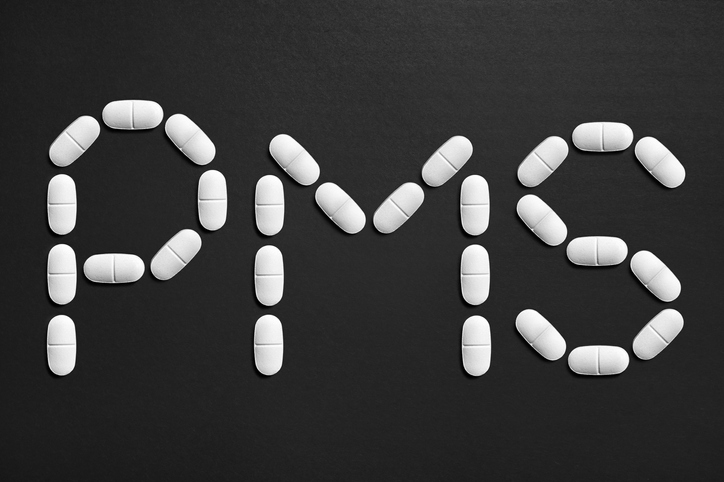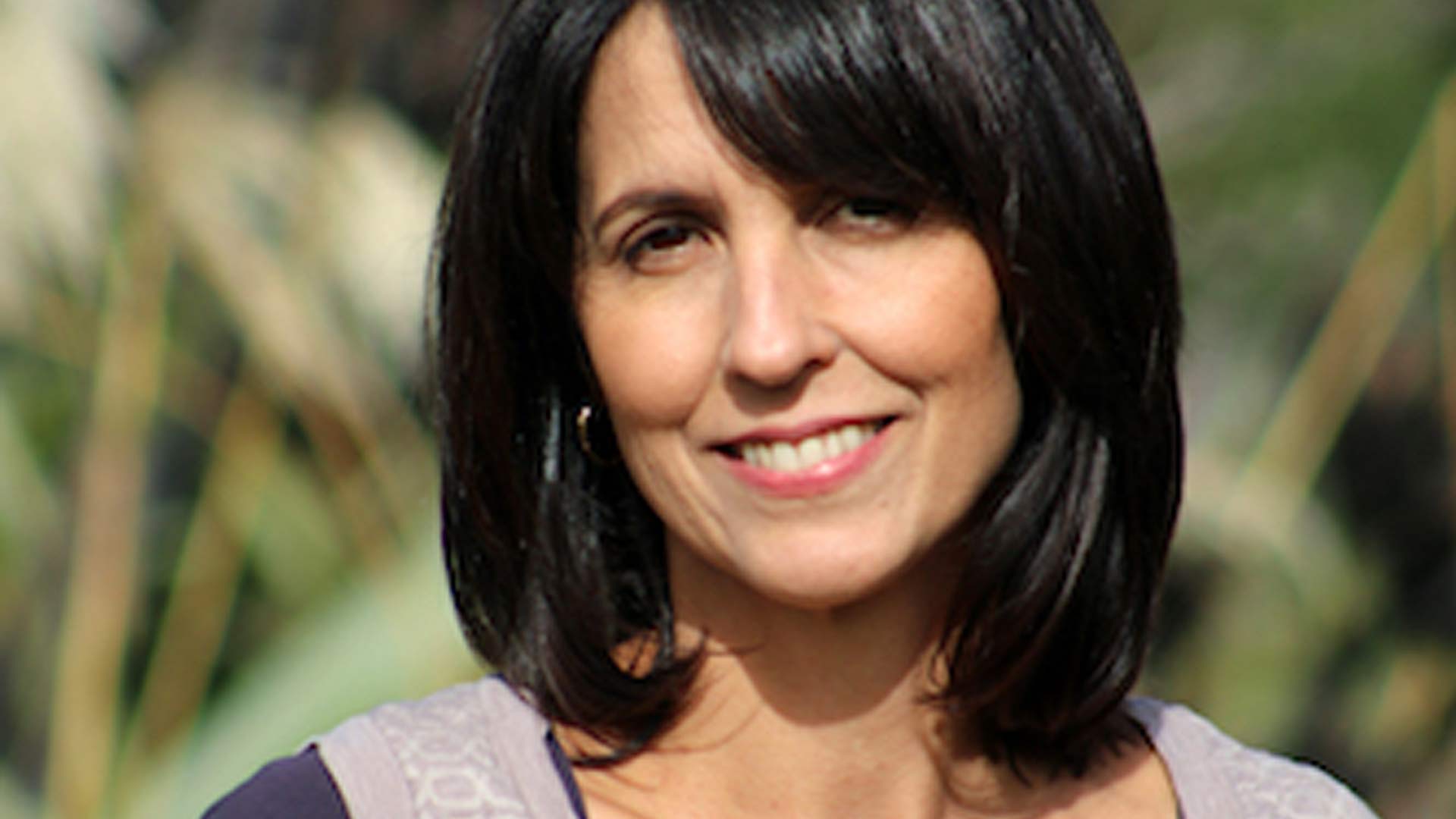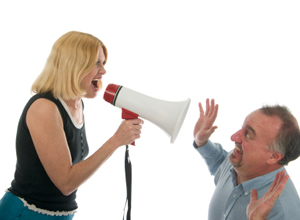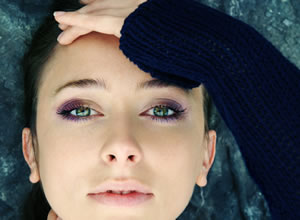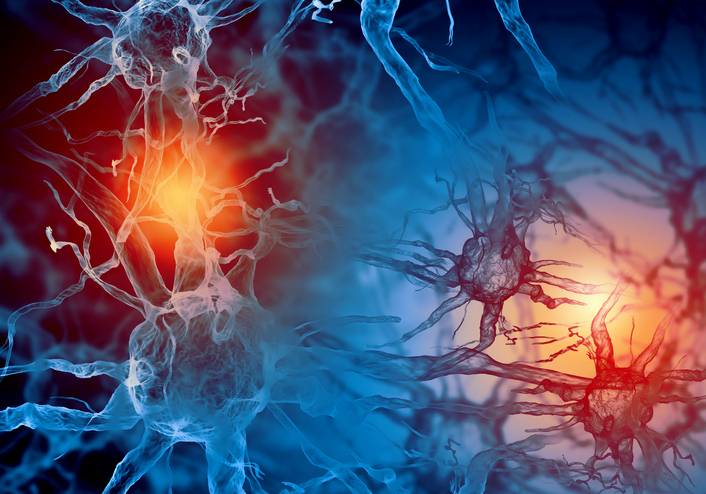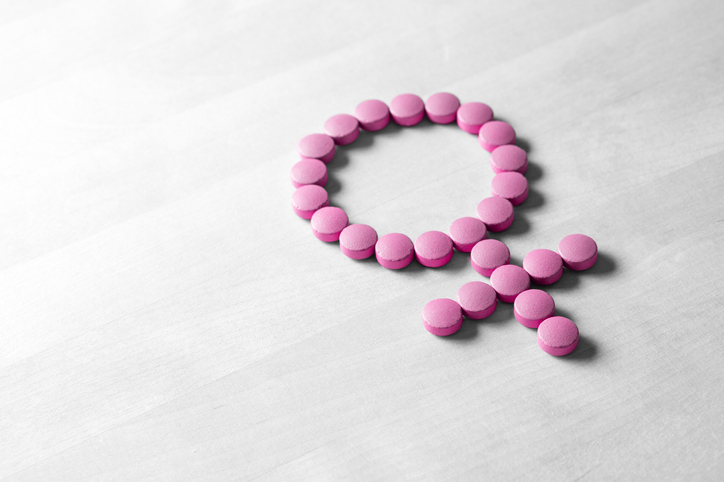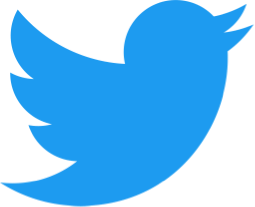by Dr Tony Coope
In parts one and two of this series I looked in some detail at what PMS is and just what causes it. The complexity of the factors leading to this syndrome, with its variable symptoms and numerous remedies can easily give rise to a sense of confusion and overwhelm. While the physical and emotional symptoms are part of a whole picture, we can consider therapeutic approaches under two headings:
First the physical, which we are addressing here, that involves lifestyle changes like exercise and diet, nutritional supplements and botanicals, hormones, allopathic drugs and surgical intervention.
Following on will be the second part which involves the more subtle areas like homeopathy, healing, bodywork, the talking and emotional therapies, and stress management.
It’s not possible (or advisable!) to try to describe all the indications for each therapy in one article, but I hope to give you an idea of ones that might be appropriate for you. It could also be useful to remind ourselves of the ‘apparent causes’ of PMS so that we can see just what we are trying to put right:
1. Excess estrogen and/or a deficiency of progesterone (‘estrogen dominance’).
2. Disturbed estrogen metabolism in the liver, with production of toxic metabolites.
3. An imbalance of other hormones such as prolactin and aldosterone.
4. An imbalance or depletion of neurotransmitters (‘molecules of emotion’).
5. Nutritional deficiencies, due to poor diet.
In addition, behind the above may lie chronic stress, past traumas, childhood abuse, and suppressed emotions – each of which can then play a very significant part.
Lifestyle changes
A rational approach would be a balanced healthy diet to provide basic nutrients, with low levels of sugar and alcohol and an increased consumption of green leafy/cruciferous vegetables. You also need some good quality protein and essential fats to build hormones and neurotransmitters. That diet however is more applicable to prevention and maintenance than for serious therapeutic effect, so if your diet does not follow this ‘ideal’ you will need to take additional measures to supplement deficiencies. For instance, to match the effective dose of a supplement such as indole-3-carbinol you would need to eat 130 raw Brussels sprouts or 1/4 of a head of cabbage daily!
In your environment, where possible, avoid hormone disrupters (solvents, pesticides, PCBs, hormones in dairy products and non-organic meat). This is not easy if you live in areas where there is intensive beef and dairy farming, or fluoridation of the water supplies, which in southern Ireland, for instance, appears to have led to a marked increase in PMS, menopausal problems, and thyroid disorders.
We are designed to move; our functional age is directly related to our muscle mass and our fitness, flexibility and stamina. This impacts our immune system and our mood because activity we enjoy stimulates ‘good mood’ hormones (the ‘endorphin high’). So it’s actually counterproductive for us to push ourselves through exercise we don’t enjoy.
Water is vital as the body needs to be hydrated for all its biochemical systems to work at full efficiency.
Mainstream options
1. Diuretics: long-term use may lead to electrolyte imbalance and low-grade dehydration.
2. Oral contraceptives or long-acting synthetic progestogens to stop ovulation: these may worsen mood and depression. If you have symptoms of estrogen dominance then you certainly do not need more estrogen.
3. Antidepressants and Tranquillisers (benzodiazepines). A recent study on SSRIs (serotonin re-uptake inhibitors) concluded that their benefit in mild to moderate depression was no better than placebo, and side-effects are common. They may be justified in the most severe forms of PMS, or in ‘premenstrual exaggeration’ when symptoms do not end with the onset of menstruation, but there are much better alternatives that supply the body with natural precursors to serotonin which encourage its production and without side-effects. Tranquillisers, in my opinion, are never justified for use in PMS.
4. Hysterectomy and removal of ovaries: this has become established as a last resort to bring a final stop to ovarian function and may be the only option in one particular situation (see Part 4). Replacement HRT is almost always required, with its potential for problems; particularly the misguided practice of prescribing estrogen alone, leaving sensitive breast tissue open to the malign influence of estrogen metabolites.
Nutritional supplements and botanicals (herbs)
While simple lifestyle changes may suffice for mild PMS, many women with the more severe forms find it takes too long, and too much self discipline, to turn things around when they are feeling so below par. Supplements are an excellent way of replacing the minerals, vitamins, amino-acids and essential fats that are needed for the body’s production of stress and other hormones, neurotransmitters and enzymes; and for the rebalancing of the metabolic processes that are vital for the detoxification of excess estrogen.
Of real importance here is the fact that in the wrong conditions (liver congestion, low thyroid function, chronic stress) the preferred protective biochemical (2-hydroxy) pathway may switch to the more toxic (16-hydroxyestrone) back-up, the metabolites of which are linked to autoimmune disease, depression, fibroid tumours of the uterus, osteoporosis and cancers of the breast, uterus, cervix and ovaries. Specific nutrients are required for the process of ‘methylation’ which renders harmless many metabolic reactions in the body, that of estrogen among them.
Supplements relevant to PMS include vitamins B3, B6, B12, C, biotin and folic acid; the minerals zinc, chromium, magnesium; essential fats (omegas 6, 9,and especially 3); amino acids such as tryptophan and taurine (precursors of serotonin, the body’s natural anti-depressive), and the neurotransmitter GABA.
Botanicals contain many beneficial substances, including phytoestrogens, in treating PMS and the most well known are:
1. Agnus Castus (Chasteberry): may increase progesterone and reduce estrogen/prolactin.
2. Dong Quai reduces cramps and breast tenderness.
3. Black Cohosh may balance estrogen and increase serotonin.
4. Soy: isoflavones are phytoestrogens.
You will find high quality combinations of minerals, vitamins, aminoacids, glandulars and herbs available that are targeted at specific organ systems, and which all play their part in the complex network of biochemical processes involved in PMS.
Hormones
Bioidentical progesterone is something that many doctors working in this field have found to be an absolute godsend in treating PMS. It is very safe and has negligible side-effects, although for some women there may be a temporary ‘blip’ after first use, when estrogen dominance symptoms such as breast tenderness and bloating may be exaggerated initially. This is due to progesterone’s ability to re-sensitise estrogen receptors. In my experience progesterone usually relieves most symptoms significantly, and often completely.
Progesterone can make a really significant difference much more quickly than other approaches, which can then be taken on board when symptoms have settled and life seems more under control.
It has many benefits: anti-inflammatory, mood enhancing, supportive of thyroid function, etc, but can also be converted in the body to estrogen, testosterone, aldosterone (involved with water and electrolyte balance) and the stress hormones, most of which I have talked about in relation to PMS. I still find it extraordinary that it is still not more widely accepted by the medical mainstream.
In the next article in this series I will look at the more subtle approaches to PMS including homeopathy, healing, bodywork, the talking and emotional therapies, stress ‘management, the energy psychologies, full spectrum and laser light, meditation and spiritual practices. Also a summary of how we can put to good use what we have learnt.
- - - - - - - - - -
Dr Tony Coope has over twenty years experience in General Practice, prior to which he spent four years as a hospital doctor, covering the specialities of medicine, surgery, paediatrics, geriatrics and emergency/trauma medicine.
In the early ’90’s he left general practice to explore an Integrated Medical approach including the use of nutritional supplements, bioidentical hormones and botanicals.
In parts one and two of this series I looked in some detail at what PMS is and just what causes it. The complexity of the factors leading to this syndrome, with its variable symptoms and numerous remedies can easily give rise to a sense of confusion and overwhelm. While the physical and emotional symptoms are part of a whole picture, we can consider therapeutic approaches under two headings:
First the physical, which we are addressing here, that involves lifestyle changes like exercise and diet, nutritional supplements and botanicals, hormones, allopathic drugs and surgical intervention.
Following on will be the second part which involves the more subtle areas like homeopathy, healing, bodywork, the talking and emotional therapies, and stress management.
It’s not possible (or advisable!) to try to describe all the indications for each therapy in one article, but I hope to give you an idea of ones that might be appropriate for you. It could also be useful to remind ourselves of the ‘apparent causes’ of PMS so that we can see just what we are trying to put right:
1. Excess estrogen and/or a deficiency of progesterone (‘estrogen dominance’).
2. Disturbed estrogen metabolism in the liver, with production of toxic metabolites.
3. An imbalance of other hormones such as prolactin and aldosterone.
4. An imbalance or depletion of neurotransmitters (‘molecules of emotion’).
5. Nutritional deficiencies, due to poor diet.
In addition, behind the above may lie chronic stress, past traumas, childhood abuse, and suppressed emotions – each of which can then play a very significant part.
Lifestyle changes
A rational approach would be a balanced healthy diet to provide basic nutrients, with low levels of sugar and alcohol and an increased consumption of green leafy/cruciferous vegetables. You also need some good quality protein and essential fats to build hormones and neurotransmitters. That diet however is more applicable to prevention and maintenance than for serious therapeutic effect, so if your diet does not follow this ‘ideal’ you will need to take additional measures to supplement deficiencies. For instance, to match the effective dose of a supplement such as indole-3-carbinol you would need to eat 130 raw Brussels sprouts or 1/4 of a head of cabbage daily!
In your environment, where possible, avoid hormone disrupters (solvents, pesticides, PCBs, hormones in dairy products and non-organic meat). This is not easy if you live in areas where there is intensive beef and dairy farming, or fluoridation of the water supplies, which in southern Ireland, for instance, appears to have led to a marked increase in PMS, menopausal problems, and thyroid disorders.
We are designed to move; our functional age is directly related to our muscle mass and our fitness, flexibility and stamina. This impacts our immune system and our mood because activity we enjoy stimulates ‘good mood’ hormones (the ‘endorphin high’). So it’s actually counterproductive for us to push ourselves through exercise we don’t enjoy.
Water is vital as the body needs to be hydrated for all its biochemical systems to work at full efficiency.
Mainstream options
1. Diuretics: long-term use may lead to electrolyte imbalance and low-grade dehydration.
2. Oral contraceptives or long-acting synthetic progestogens to stop ovulation: these may worsen mood and depression. If you have symptoms of estrogen dominance then you certainly do not need more estrogen.
3. Antidepressants and Tranquillisers (benzodiazepines). A recent study on SSRIs (serotonin re-uptake inhibitors) concluded that their benefit in mild to moderate depression was no better than placebo, and side-effects are common. They may be justified in the most severe forms of PMS, or in ‘premenstrual exaggeration’ when symptoms do not end with the onset of menstruation, but there are much better alternatives that supply the body with natural precursors to serotonin which encourage its production and without side-effects. Tranquillisers, in my opinion, are never justified for use in PMS.
4. Hysterectomy and removal of ovaries: this has become established as a last resort to bring a final stop to ovarian function and may be the only option in one particular situation (see Part 4). Replacement HRT is almost always required, with its potential for problems; particularly the misguided practice of prescribing estrogen alone, leaving sensitive breast tissue open to the malign influence of estrogen metabolites.
Nutritional supplements and botanicals (herbs)
While simple lifestyle changes may suffice for mild PMS, many women with the more severe forms find it takes too long, and too much self discipline, to turn things around when they are feeling so below par. Supplements are an excellent way of replacing the minerals, vitamins, amino-acids and essential fats that are needed for the body’s production of stress and other hormones, neurotransmitters and enzymes; and for the rebalancing of the metabolic processes that are vital for the detoxification of excess estrogen.
Of real importance here is the fact that in the wrong conditions (liver congestion, low thyroid function, chronic stress) the preferred protective biochemical (2-hydroxy) pathway may switch to the more toxic (16-hydroxyestrone) back-up, the metabolites of which are linked to autoimmune disease, depression, fibroid tumours of the uterus, osteoporosis and cancers of the breast, uterus, cervix and ovaries. Specific nutrients are required for the process of ‘methylation’ which renders harmless many metabolic reactions in the body, that of estrogen among them.
Supplements relevant to PMS include vitamins B3, B6, B12, C, biotin and folic acid; the minerals zinc, chromium, magnesium; essential fats (omegas 6, 9,and especially 3); amino acids such as tryptophan and taurine (precursors of serotonin, the body’s natural anti-depressive), and the neurotransmitter GABA.
Botanicals contain many beneficial substances, including phytoestrogens, in treating PMS and the most well known are:
1. Agnus Castus (Chasteberry): may increase progesterone and reduce estrogen/prolactin.
2. Dong Quai reduces cramps and breast tenderness.
3. Black Cohosh may balance estrogen and increase serotonin.
4. Soy: isoflavones are phytoestrogens.
You will find high quality combinations of minerals, vitamins, aminoacids, glandulars and herbs available that are targeted at specific organ systems, and which all play their part in the complex network of biochemical processes involved in PMS.
Hormones
Bioidentical progesterone is something that many doctors working in this field have found to be an absolute godsend in treating PMS. It is very safe and has negligible side-effects, although for some women there may be a temporary ‘blip’ after first use, when estrogen dominance symptoms such as breast tenderness and bloating may be exaggerated initially. This is due to progesterone’s ability to re-sensitise estrogen receptors. In my experience progesterone usually relieves most symptoms significantly, and often completely.
Progesterone can make a really significant difference much more quickly than other approaches, which can then be taken on board when symptoms have settled and life seems more under control.
It has many benefits: anti-inflammatory, mood enhancing, supportive of thyroid function, etc, but can also be converted in the body to estrogen, testosterone, aldosterone (involved with water and electrolyte balance) and the stress hormones, most of which I have talked about in relation to PMS. I still find it extraordinary that it is still not more widely accepted by the medical mainstream.
In the next article in this series I will look at the more subtle approaches to PMS including homeopathy, healing, bodywork, the talking and emotional therapies, stress ‘management, the energy psychologies, full spectrum and laser light, meditation and spiritual practices. Also a summary of how we can put to good use what we have learnt.
- - - - - - - - - -
Dr Tony Coope has over twenty years experience in General Practice, prior to which he spent four years as a hospital doctor, covering the specialities of medicine, surgery, paediatrics, geriatrics and emergency/trauma medicine.
In the early ’90’s he left general practice to explore an Integrated Medical approach including the use of nutritional supplements, bioidentical hormones and botanicals.
* This information is for general interest only. Every woman is unique. Your results may vary.
PMS encompasses a huge range of symptoms - and potential treatments. But some treatments are more successful than others.
Based on the foundation of enhancing natural progesterone, this 3 step plan could be a complete solution for PMS problems
Hear what doctors have to say about natural progesterone and its benefits
Based on the foundation of enhancing natural progesterone, this 3 step plan could be a complete solution for PMS problems
Over 35? Then you could still be at risk of PMS and those symptoms you thought you had left behind long ago
PMS responds very well to progesterone, but there are a few more things that can enhance your response and make a real difference
What exactly is Premenstrual Syndrome and how can you recognise its symptoms?
The causes and effects of PMS can be more complex and interrelated than mainstream medicine allows for.
In the third part of his series on PMS, Dr Coope looks at the treatments available for symptoms relief
In the fourth and final part of his series on PMS Dr Coope discusses the deeper and more gentle holistic approaches to symptoms relief
All information given on this site is for general interest only. Every woman is unique. Your results may vary.























